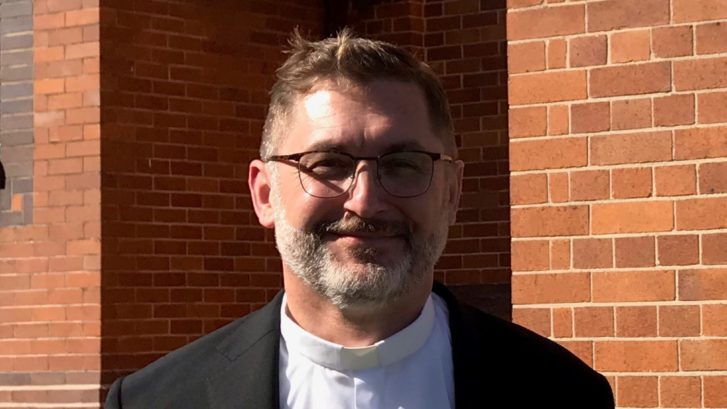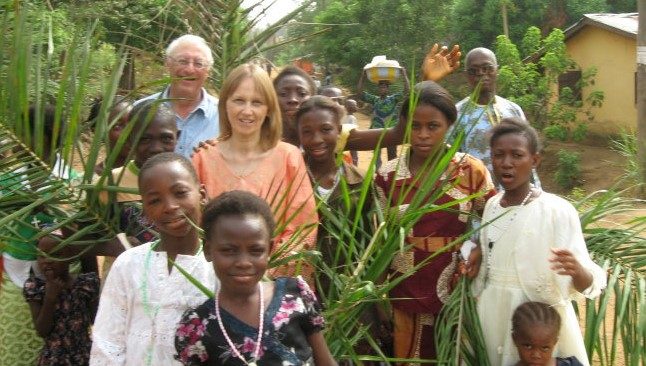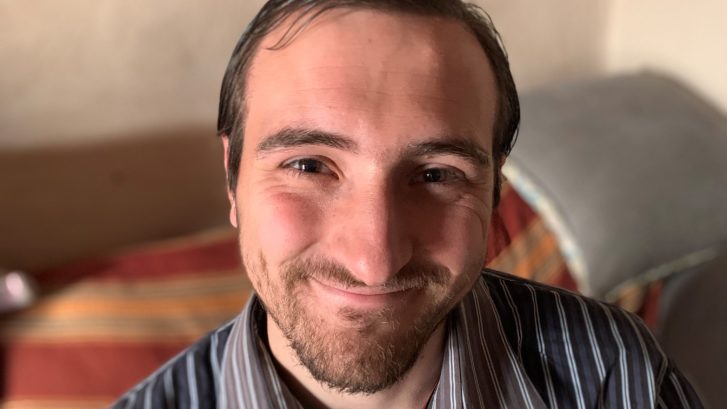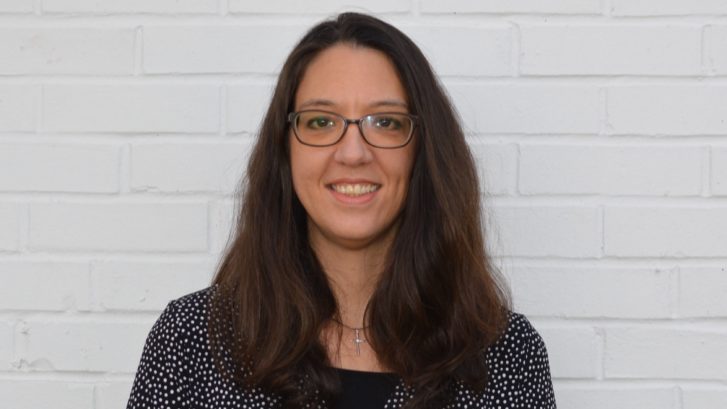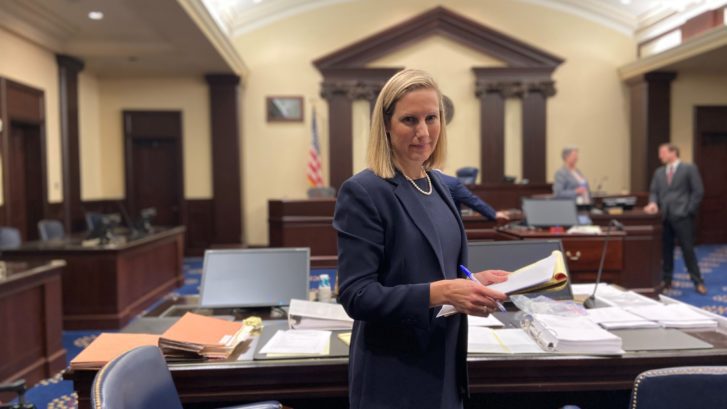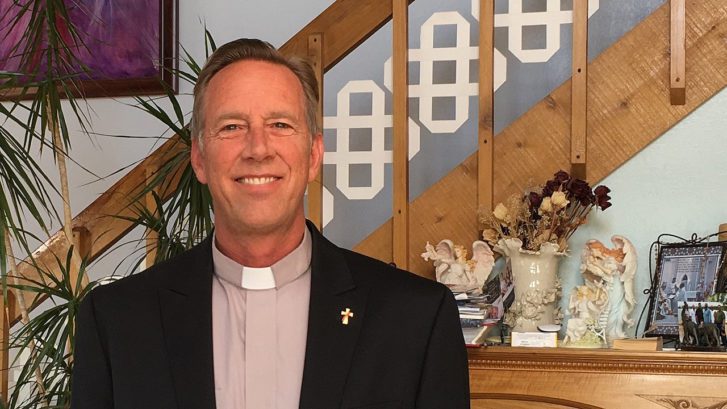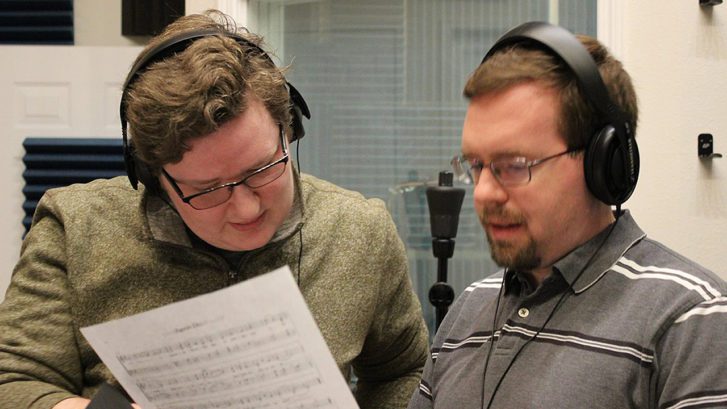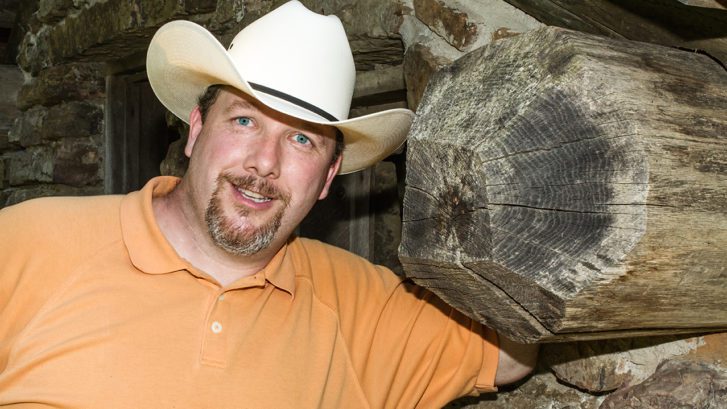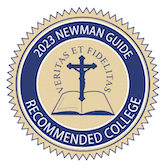Deacon Frederick Bartels of Glade Park, Colorado, is a homegrown professor. He received his Catechetical Diploma (2014), BA in Theology (2016), and MA in Theology and Educational Ministry (2017) from Catholic Distance University, earning the latter two degrees Summa Cum Laude. In addition to his work as a theology professor, he serves the Diocese of Pueblo as parochial deacon assigned to St. Joseph Church in Grand Junction, Colorado, where he served earlier as director of religious education and director of liturgy.
“I’m especially blessed to teach at CDU as a professor of theology, something which is a work of joy,” he says. “The people I’ve interacted with over the years at CDU are people who, at some point in their lives, fell in love with the truth who is Christ himself. That makes all the difference.”
He describes CDU as a learning community of faith in truth. When asked what he enjoyed most about his experience as a student, he says, “Confidence in the fact that I was surrounded and supported by faithful people and confidence in the fact that I was receiving an education reaching into eternity.
“In a world where it is becoming increasingly difficult to receive an authentic education in theology, CDU is an institution where people learn what is really true as they are formed by divine revelation and guided by instructors who are aware of the importance of the magisterium as its authentic interpreter,” Deacon Bartels says. “There’s no point in attempting to acquire an education in theology from a university that removes itself in some way from the perennial belief and teaching of the Church. That type of “education” isn’t a true education in theology.”
Deacon Bartels, who is married and has six children, spent many years in discernment before pursuing the diaconate. “Our Lord Jesus Christ called me to the diaconate in a progressive way over time, kind of like how the people of Israel were prepared by God over the course of centuries for the coming of Christ in history, to use an analogy,” he says. “In Exodus we read about how the people Israel were thick headed, stubborn, and stuck in their old ways. I’m sure God began calling me to the diaconate long before I had even heard of deacons. It took years and years for that message to get through.”
One of the first times he thought about what it might be like to be a deacon occurred at Holy Mass. “I found myself listening to the priest and thinking about how I might present a homily on the same topic, about what I might say and what would be important to stress. Although, at first, I didn’t interpret any of that as an actual call to the diaconate, I gradually began to realize with increasing certainty that Jesus was indeed calling me to serve the Church as a permanent deacon,” he says.
He put off the idea for about three years, since entering formation would require lots of travel time and a significant financial investment. “As time went on, people began saying things like, ‘You should become a deacon.’ Eventually I got to the point where I felt I needed to say “yes,” and I’m glad I did,” he says. After interviews, psychological testing, and four years of driving to formation classes six hours away, he was ordained in August of 2013. “It’s been a wonderful blessing,” he says, “not all roses, of course, but I’m thankful for the opportunity to serve Christ and his Church.”
Deacon Bartels is also a contributing writer for various online publications, and he was recently featured on a radio show on the importance of truth in our lives and the dangers of relativism, which he defines as denial of certain absolute truths and moral norms that transcend the human person.
“Pope Emeritus Benedict XVI is known for frequently warning against the dangers of a pervasive influence of relativism in the West, an influence that is in many ways linked to the rapid rise of what he termed a ‘Culture of Death,’” Deacon Bartels says. “In fact, he noted relativism is so widespread that it affects people on a subliminal level. In other words, people often adopt relativism in an almost subconscious way, to varying degrees, without actually being fully aware of how significant its influence is in their lives, attitudes, and behavior.”
“Relativism is dangerous because it infects the way people think about important beliefs and moral issues, introducing a kind of virus, if you will, into their moral code and society itself that attacks how people perceive the truth about the way things really are. Relativism is waging a war on truth; the human person is its casualty,” he says.
People often ask Deacon Bartels what they can do to counter relativism. “The answer is prayer, the formation of conscience, immersion in the content of the divine faith, participation in the Holy Mass, and frequent reception of the sacraments,” he says. “Learn the faith. Read scripture. Become faith literate. Study theology (which is what CDU is about!). Then, refuse to let lies persist. Speak and live by the truth.”
Deacon Bartels feels that the study of theology has changed him. “To be frank, I’m not at all the person I used to be,” he says. “My wife thinks it has something to do with space aliens. All kidding aside, people talk about ‘game-changers.’ The study of theology is on another level altogether. Theology is a divine science because it is an ordered inquiry into divine revelation.”
“Although there were many subjects I could choose to learn about—and each is important in its own way—I recognized that theology is the subject above all subjects,” he says. “Taken seriously, the study of theology is a life-shaping and life-transforming process. It’s not simply about learning skills for success in the world, it’s about learning and understanding what God has communicated to his people for the sake of salvation.”
“Theology provides answers to the most important human questions, questions that everyone, sooner or later, must answer,” he adds. “Theology is information of heavenly value that helps to point people toward their predestined end in eternal communion with the Tripersonal God.”
“Looking back, it’s clear to me that the study of theology at CDU set my life on an entirely new path,” Deacon Bartels says. “It hasn’t been easy. It’s not a path most people choose to take. In fact, there’s no shortage of people who misunderstand the whole point of it. Some even think it’s a ridiculous enterprise. However, the study of theology has, by the grace of God, opened up opportunities in my life to really make a difference in the lives of others by serving Christ.”
“If I could do a retake, I wouldn’t change a thing—except maybe listen a little more attentively and start the whole process earlier,” he says.
